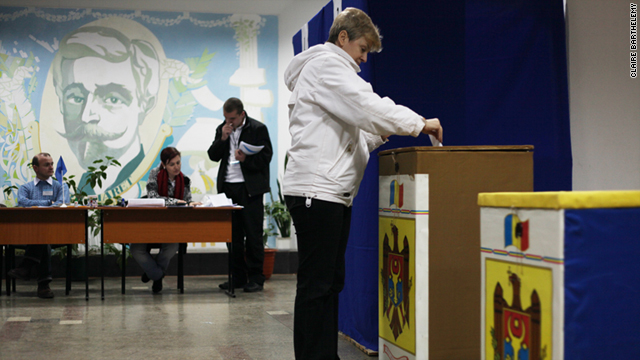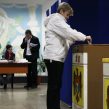
Moldova’s Stunted Post-Soviet Transition Resumes After Elections
Publication: Eurasia Daily Monitor Volume: 6 Issue: 148
By:

Almost 20 years after Eastern Europe embarked on the post-communist transition, Moldova has a chance to start that process in earnest after the repeat parliamentary elections held on July 29. The repeat elections’ outcome is almost as indecisive as that of the April 5 elections. The Communist Party (in power since 2001) won for the fourth consecutive time, but has now fallen short of the absolute majority necessary for governing. The party garnered approximately 45 percent of the total votes cast, some 4 percent down from the party’s April performance. There are four opposition parties in the new parliament, and they are divided by outlook and interests.
Final election returns (Moldpres, Basapres, August 1) show the Communist Party with 48 seats in the 101-seat parliament, the Liberal-Democrat Party with 18, Liberal Party with 15 Democratic Party with 13, and Our Moldova with 7. Several leaders of these parties intend to seek election as head of state by parliament to replace President Vladimir Voronin, whose second and final term expired in April but who serves as acting president under controversial legal arrangements.
This is a hung parliament (again), requiring complex and even improbable bargains for electing a state president, installing a government, and proceeding with the enactment of overdue reforms. The political atmosphere in Chisinau remains suffused with mutual intolerance and inflammatory rhetoric on all sides, except the revamped Democratic Party, headed by the preceding parliament’s chairman Marian Lupu. The parliament will have to hold its meetings in some improvised premises. Its building and that of the state presidency were devastated on April 7 by mobs including the opposition’s sympathizers, protesting against the Communist Party’s April 5 election victory (which proved, however, almost as indecisive as the July 29 repeat election’s outcome).
Moldova’s transition process is mired today in an early post-Soviet stage. The Communist Party retains deep roots in society (through Soviet nostalgia, the power of patronage, and still-widespread societal deference to authority); the posts of party leader and head of state are merged into one; a de facto pyramid of power (albeit with significant gaps) holds the state together, instead of genuine state institutions; non-transparent business entities linked to the ruling group dominate the internal market; justice and law enforcement are subject to political control from the top; deficient, antiquated administrative capacity is setting the country apart from Europe; electoral processes and party politics are largely managed as projects of "political technology;" the Russian and "Russian-speaking" minorities look toward Moscow; public television is loyal to the authorities, politically effective despite its deadwood quality; and the country itself remains embedded in Russia’s information and mass-media space.
In one major advance from the early post-Soviet stage, the Communist Party leadership and the government loyal to it (which is not party-affiliated) have put Moldova, since 2004, on the path toward integration with the European Union, and remain committed to that course after the 2009 elections. Nevertheless, given the exigencies of two consecutive electoral campaigns this year, the communists have moved toward a "two-vector" policy of balance between a European and a Russian orientation. Some other parliamentary parties are making tactical overtures to Moscow in the election’s aftermath. The E.U.’s wait-and-see attitude during these many months has, unnecessarily, made the Russian factor more relevant to Moldova’s internal politics than has been the case in many years.
The country is now literally disabled from pursuing the E.U. integration course with a vacant state presidency, lame-duck caretaker government, and a deeply fragmented parliament that may again fail to elect a president and install a government. The institutional vacuum has set in since March and may continue for some time, leading to yet another round of parliamentary and presidential elections next year, while the country sinks deeper into a crisis of governance amid an economic crisis.
E.U. authorities in Brussels are conscious of that risk. The E.U.’s high representative for foreign and security policy, Javier Solana, has publicly urged all parties in the new parliament to install a government and elect the head of state as expeditiously as possible, in the country’s interest and in order to start negotiations with the E.U. toward a possible association agreement. A joint statement by Solana, the E.U. External Relations Commissioner Benita Ferrero-Waldner, and the E.U.’s Swedish Presidency emphasizes the same message (E.U. press releases, July 30, 31).




